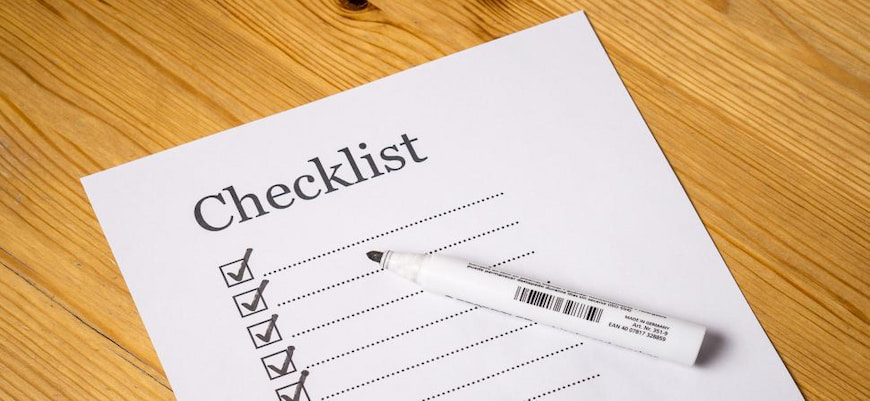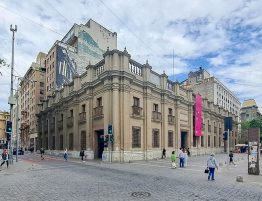
Buying property in a foreign country can be both exciting and overwhelming. Especially when the legal framework, language, and financial systems differ from what you know. For high-net-worth investors and families considering Chile as a destination, understand every step of the Chile real estate process is essential to avoid costly mistakes.
The next checklist for buying property in Chile was developed by Becker Abogados, a Santiago-based law firm with over a decade of experience advising international clients on residential, commercial, and agricultural acquisitions. Whether you’re buying a vineyard, a luxury home, or an investment plot, this guide for foreign buyers in Chile outlines every essential phase, from legal foundations to post-purchase formalities, to help you invest securely and confidently.
Phase 1: Legal Foundations (Hiring a Lawyer, Investor RUT)
Investing in real estate in Chile requires establishing a solid legal foundation from the outset, even before visiting properties or transferring funds. The first thing every foreign buyer should do is hire a real estate attorney to exclusively represent their interests. Unlike real estate agents, the attorney verifies the property, negotiates the terms of the contract, and ensures strict compliance with Chilean law.
The second step is to obtain the Investor’s RUT (Unique Taxpayer Registration Number) (which is mandatory), the most important tax identification number in Chile. The RUT is essential for legalizing property, opening bank accounts, and registering deeds. This tax identification number can be obtained remotely through a power of attorney granted to the attorney.
Completing the Investor’s RUT and hiring the attorney in advance streamlines the process, ensuring that all transactions and registrations are handled efficiently, quickly, and securely.
Phase 2: Due Diligence (Title Study, Zoning Review)
After establishing the necessary legal identity, the essential next step is meticulous due diligence to ensure the property is fully compliant and free of liabilities. The comprehensive title study (estudio de títulos) is the cornerstone of this phase. This legal audit typically examines 20 years of records at the Registrar of Real Estate (Conservador de Bienes Raíces) to confirm the seller’s clear ownership and verify the absence of liens, mortgages, hidden debts, inheritance claims, or unpaid taxes that could compromise the investment. This is the single most important step before transferring funds.
Furthermore, zoning and land use verification is critical, especially for development plans. Specialized lawyers review land classification (residential, commercial, or agricultural) with authorities like Agricultural and Livestock Service (Servicio Agrícola y Ganadero – SAG) and local municipalities. They ensure the property’s zoning permits the buyer’s intended use, also checking for essential elements like water rights, environmental restrictions, and valid construction permits.
Finally, an independent property survey is recommended for rural lands to confirm exact boundaries and prevent future disputes, securing a clean title upon transfer of ownership.
Phase 3: The Transaction (Contract, Fund Transfers, Notary)
Once legal due diligence is complete, the execution phase focuses on contractual accuracy and financial security. The crucial step is the drafting of the public deed of sale, the legally binding contract that must be drawn up by a lawyer, signed before a notary, and subsequently registered. The terms are customized to protect the foreign investor, including payment terms and seller guarantees.
For payment, the safest method in Chile is through a “vale vista”, a certified check held in the custody of the notary. The notary only releases payment once all legal requirements and seller obligations have been confirmed, ensuring that the buyer does not pay before securing the property.
Finally, the international transfer of funds is coordinated in compliance with the UAF (Financial Analysis Unit) to validate the origin of the funds, ensuring transparency and facilitating future capital repatriations.
Phase 4: Post-Purchase (Property Registration, Taxes)
Once the contract is signed, the final phase ensures the officialization of ownership and tax compliance. The first step is the registration of the deed with the Real Estate Registry. Only after this registration is the current Certificate of Ownership issued, legally confirming the new ownership.
Simultaneously, payment of the real estate transfer tax (approximately 0.2% to 0.3% of the purchase price) is mandatory. The attorney handles its calculation and proper payment during registration. The owner then assumes the annual contributions (property taxes), which are paid quarterly to the SII (Institutional Tax Service).
Finally, the process is completed by updating the insurance and utility contracts in the name of the new owner, facilitating smooth management, especially for investors managing the property remotely.
Becker Abogados Your Legal and Financial Safety Net
A successful real estate acquisition in Chile isn’t just about finding the ideal property, but also ensuring legality at every step. With decades of combined experience, Becker Abogados has managed transactions for more than 250 international clients, including luxury properties, vineyards, and commercial developments.
Our multidisciplinary team integrates real estate law, corporate structuring, and banking compliance to simplify the Chilean real estate process and protect even the most complex transactions simple and secure. Becker Abogados transforms complex real estate acquisitions into safe, transparent, and rewarding investments for foreigners.
Feeling overwhelmed? Download our complete checklist of buying property in Chile and schedule a call with us to guide you through every step. Your safe purchase starts here.









